True or False:
Biodiversity is essential to keeping our home, planet Earth, habitable.
What is TRUE!
The members of the species Turdus maximus (Tibetan blackbird) living in a certain location make up a _________?
a. population
b. community
c. succession
d. phylum
What is a. population.
What is carrying capacity?
a. A measure of how dense a population is.
b. The maximum number of organisms that can be supported in a given habitat.
c. The amount of biomass a specific biome requires to become stable after a natural disaster.
d. Any resource that can run out in an area.
What is b. The maximum number of organisms that can be supported in a given habitat.
Why is biodiversity important?
a. Variation decreases the variety of beauty in nature.
b. Fewer variations cause advantageous genes to become stronger and more frequent, increasing a species’ chances of survival.
c. Areas of high diversity tend to show an increase in average organism size.
d. Variation in a population leads to increased likelihood of success during environmental changes.
What is d. Variation in a population leads to increased likelihood of success during environmental changes.
Which factor promotes community stability?
a. High birth rates
b. Genetically different individuals
c. Disease outbreaks
d. Genetically similar individuals
What is b. Genetically different individuals.
Which line represents a population that reaches a carrying capacity?
What is line 3.
Which community would be more susceptible to disease in tree species A?
What is community 2.
(DDLF)
What equation represents a population that is increasing?
a. Birth + Immigration > Death + Emigration
b. Birth + Immigration = Death + Emigration
c. Birth + Death = Immigration + Emigration
d. Birth + Immigration < Death + Emigration
What is a. Birth + Immigration > Death + Emigration.
According to the graph, what is the carrying capacity of
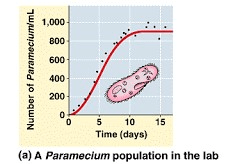
What is about 900.
Acceptable answer range:
between 850 and 950
True or False:
Microorganisms are an example of biotic factors.
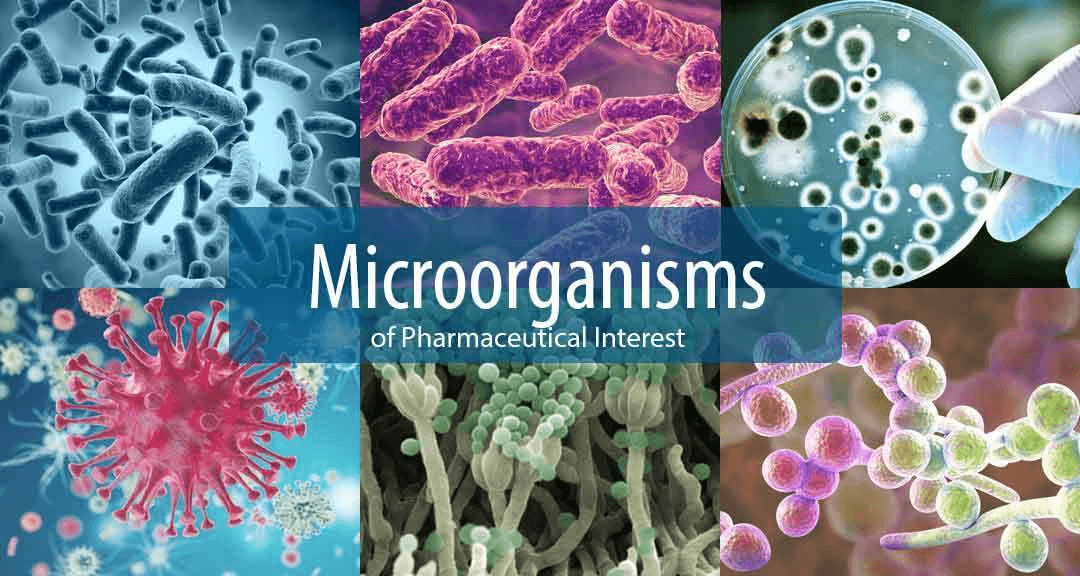
What is TRUE.
The two top graphs, graph a and b, show different paramecium (P.) populations cultivated separately in a lab. The bottom graph, graph c, shows the two populations cultivated together. What interaction best explains the results in graph c?
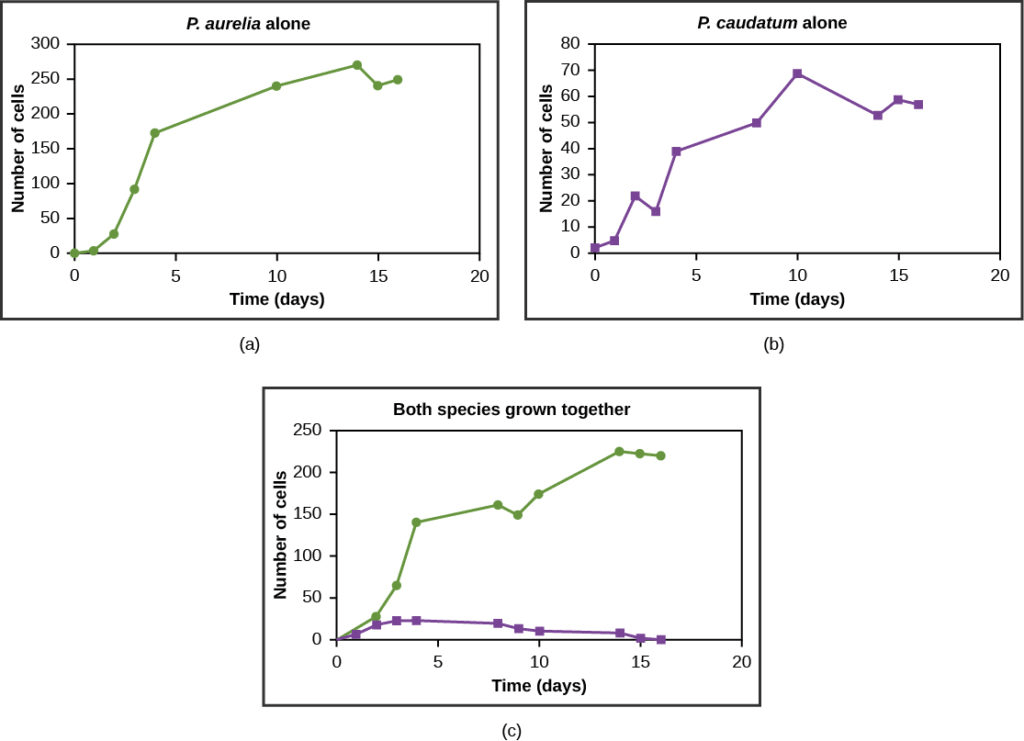
a. Disease
b. Parasitism
c. Predation
d. Competition
What is d. Competition.
This typically happens to a population if it exceeds its carrying capacity.
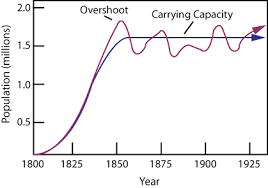
Acceptable Responses:
-What is declines. (The population will decline)
-What is death. (Some individuals within the population will die)
- What is death rate will exceed birth rate.
This special population, named after the center stone in a masonry arch, is critical to the functioning of an ecosystem and the maintenance of biodiversity.
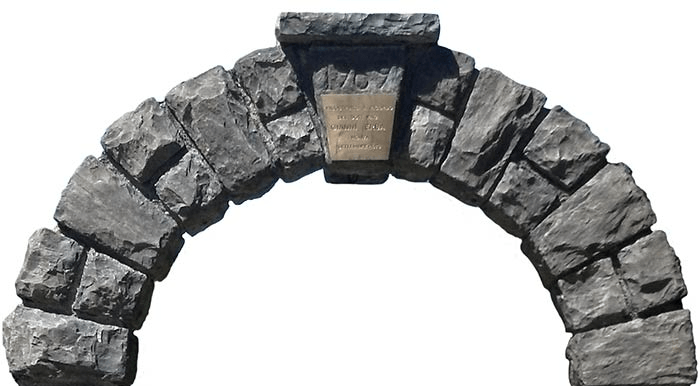
What is keystone species.
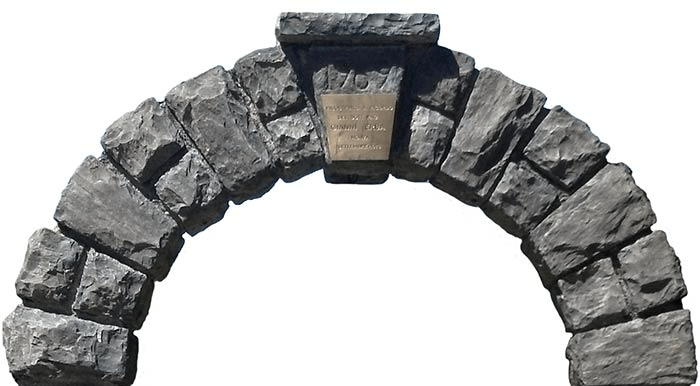
The growth pattern pictured below is often referred to as this letter of the alphabet.
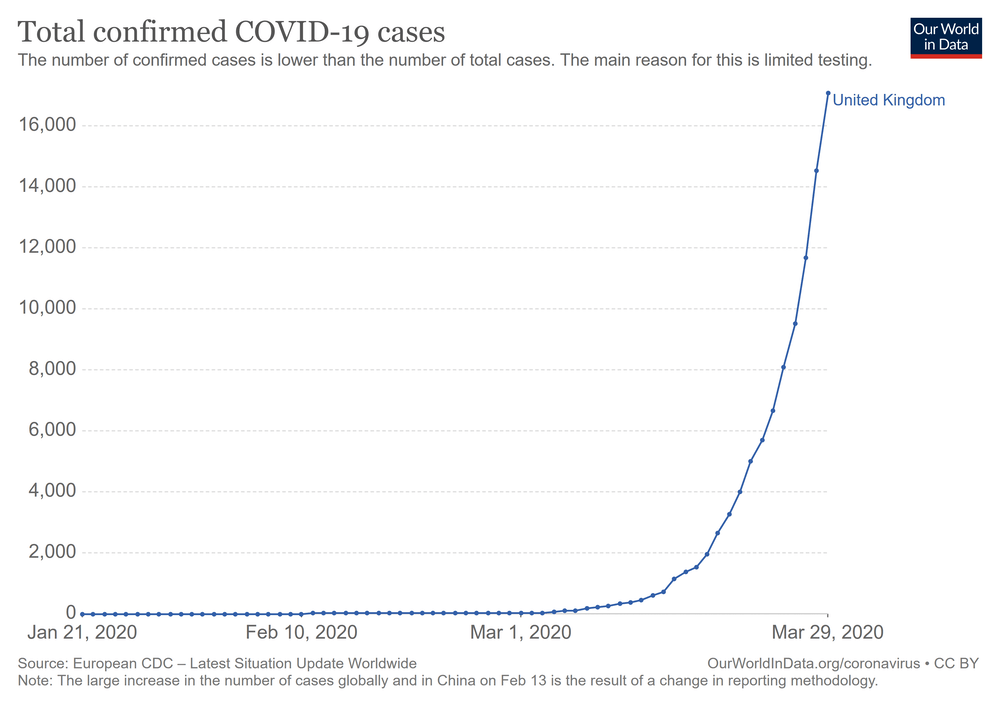
Acceptable answers:
What is "J".
What is J-shaped curve.
Which of the following might be a density-independent limiting factor for a population of Screwbean Mesquite trees.
a. Saltcedar AKA Tamarisk
b. Fire
What is b. fire.
but why!?